#AutoSales
Auto Sales Officially Considered 'Essential Service' by U.S. Government
Updated social distancing guidance released by the Department of Homeland Security’s Cybersecurity and Infrastructure Security Agency (CISA) on Friday indicates the automotive industry is now an essential business.
Version 3.0 (for those keeping count) of what constitutes “essential critical infrastructure workers” added a number of job descriptions as the federal government mulls how to restart the U.S. economy. Among them is pretty much every job related to automotive manufacturing and sales.
Global Pandemic May Hit Luxury Brands the Hardest
Mercedes-Benz got out in front of BMW while automotive sales languish in the gutter, though neither company finds itself resting comfortably upon a bed of roses. The global pandemic has made sure of that; no segment has gone unaffected by social distancing measures, but it may be the luxury divisions that have it the hardest moving forward.
Up until recently, premium nameplates had done rather well — scooping up an increasing share of the total auto market for years. While the Great Recession momentarily suppressed their ascension in 2008 and 2009, it was a temporary setback.
Luxury brands have had a good decade overall, with any rough years being offset by expansions in their lineup (chiefly crossover vehicles). Now they’re trying to move downmarket to capitalize on younger customers with a bit more pocket money. It might have been a good strategy, were it not for the coronavirus outbreak and subsequent economic downturn.
Chinese Auto Market: Inbound Rebound?
With China serving as the flashpoint of the coronavirus outbreak that brought the world down a peg or two, industry and financial analysts have been watching that market like a hawk. The country went into this crisis before any other, which may prove useful for predicting the general path of global recovery efforts.
Unfortunately, specious reports about the number of infected citizens inside that nation have cast a double-quilted blanket of doubt over its official statistics. We don’t actually know if the Chinese government has effectively wrangled the illness or is just hoping to win an international public relations battle. Fortunately, infection rates and death tolls aren’t the only metrics we have to rely on.
According to the China Passenger Car Association, auto sales plummeted by as much as 96 percent since COVID-19 began its relentless spread. This came after months of negative sales growth, leaving the Chinese market in a truly unenviable situation once mandatory quarantines were enacted. Now, circumstances have changed. Showrooms are reopening and many factories have resumed operations, only this time they’re the ones that have to worry about supply chain issues.
As ATPs Rise and Loan Terms Grow Obese, Trade-ins Are Less of a Trade-off
Auto loan terms have been creeping up for as long as anyone can remember. Back in 1997, the average financing period on a new car was somewhere around 54 months. That crept up to over 60 months by 2004 and has only continued to climb. Over the past decade, the typical automotive loan term has ballooned by almost 30 percent. According to an analysis by Edmunds, the average financing period on a new vehicle sold in the United States surpassed 70 months in March of 2020.
While automakers’ recent introduction of loans extending up to 7 years (especially now that COVID-19 is hampering sales) has exacerbated the issue, we were already sitting on a 69-month average in October of 2019. Why would someone voluntarily agree to such a lengthy agreement? They may not have much of an alternative due to similar growth in vehicle transaction prices.
Coronavirus Impact: Canadian Auto Sales Drive Off a Cliff
Mirroring its southern neighbor, Canadian auto sales took a dive last month as measures designed to slow the spread of COVID-19 went into effect across the country. First-quarter volume, as a result, fell roughly 20 percent across the industry, with March’s decline pegged at 48 percent by DesRosiers Automotive Consultants (via Bloomberg).
Still, amid all the gloom were statistical bright spots.
Not Everyone Drove Away With a Low-interest Loan in March
We told you yesterday how zero-interest financing exploded in popularity in the final two weeks of March, as governments everywhere belatedly clamped down and automakers had to pull out all the stops to lure frightened buyers out of their homes. Despite many would-be buyers not taking the bait, for some, zero-percent/84-month loans proved as irresistible as topless pics of a young starlet on the beach.
At the same time, drivers who stood no chance of netting that coveted no-interest loan were also headed to dealers.
Imagine If Monthly Sales Reporting Was Still a Thing…
The growing movement to ditch monthly sales reporting in favor of quarterly updates will blur the impact of this month’s coronavirus-related shelter-in-place orders.
Many automakers, the Detroit Three most notably, left monthly sales reports in the dust long ago, meaning the March decline will have to mingle with the business-as-usual months that preceded it. Right now, it’s left to analysts to tell us the damage.
One has a good idea of what happened this month.
BMW 8 Series Rubbing Dealers the Wrong Way
BMW dealers are having a problem with the 8 Series. The returning flagship appears to be a bit too rich for North American tastes and retailers are growing annoyed.
According to Automotive News, retailers are upset that BMW didn’t issue enough marketing support to make the public aware that it even exists, and feel that the amount of configuration available works against the vehicle. As a result, many dealerships are sitting on expensive halo vehicles nobody seems to want; the 8 Series now has the highest day supply of any BMW model currently produced.
Have You Heard About the Coronavirus Being Bad for the Economy Yet?
As we attempt to wean ourselves off endless discussions the new coronavirus, we’ve noticed there’s not exactly a glut of alternative news out there. Trade shows are being delayed, factories are being idled, and the whole world seems to be in standby mode as we attempt to stall the spread of COVID-19 following its migration out of China.
Regional quarantines in Asia were already doing a number on supply chains, and it wasn’t long before manufacturers around the world began idling production to further slow the virus’s spread. By the beginning of March, it was becoming quite clear that auto sales would suffer significant impacts as people spent the next several weeks isolated in their own homes. Now, the push is on to assess just how much this whole ordeal will impact an OEM’s bottom line.
Minivan Market Share Is Now at 2 Percent In America, and It's Rapidly Getting Worse
Sales of minivans in the United States in 2019 plunged below Great Recession levels as every member of the existing quintet reported sharp year-over-year declines.
The 408,982 sales produced by the Dodge Grand Caravan, Chrysler Pacifica, Honda Odyssey, Kia Sedona, and Toyota Sienna in calendar year 2019 were a far cry from the 1.1 million sales produced by the sector in 2005, or even the 553,506 sold three years ago. But after hovering just below or above 3 percent of the market for half a dozen years, and after overall volume showed signs of recuperation through the middle half of the last decade, the segment’s 2019 collapse suggests we haven’t reached bottom yet.
At the current rate of decline, America won’t even acquire 300,000 minivans next year.
It’s a shame.
Coronavirus Delays Beijing Auto Show, Chinese Grand Prix, Formula E
Thanks to the ongoing coronavirus outbreak in China, the Beijing auto show has reportedly been postponed. While the event was supposed to take place at the end of April, making its yearly trade with the similarly biannual Shanghai trade show, organizers have decided it’s not worth the risk.
Over 70,000 people have reportedly contracted the virus thus far, with the death toll estimated to be somewhere around 1,700. The White House recently said it did not have “high confidence in the information coming out of China,” estimating higher figures. Travel and shipping bans further complicate the matter. Germany’s Automobilwoche said exhibitors wouldn’t be able to ship displays into the country anyway, referencing health notices sent to global logistics organization CIETC.
Coronavirus Infects Chinese Auto Market, Supply Chain Problems Persist
Not that there’s ever a good time for a global pandemic threat, but the coronavirus currently sweeping through Asia really could have scheduled itself more conveniently. China was already in the midst of an economic downturn when the virus reared its ugly head, with the country’s automotive sector having just moved backward for the second year in a row. The outbreak, centered in the Hubei province’s capital of Wuhan, is guaranteed to worsen the issue.
Responsible for about a tenth of China’s automotive manufacturing power, the region has basically gone dark since the outbreak picked up steam late last month. Over 50 million people are now presumed to be under house arrest due to the Chinese quarantine. Forbidden from going outside, they’re hardly likely to risk infection and government ire just to put for a few hours at their local factory. They also aren’t going to run out to their nearest dealership to support the ailing economy — but that’d be the first place to go after the sequestration ends.
If I were in their shoes, I certainly wouldn’t be taking the bus for a while.
Big Discounts Could Mean Big Trouble for Midsize Jeep Gladiator
Jeep dealers are now discounting Gladiator models by as much as $9,000, indicating demand for the Wangler-based pickup has seriously cooled off. Considering the insane markups we saw at launch, that’s not much of an insult.
Now that Fiat Chrysler only reports sales on a quarterly basis — an obnoxious trend sweeping through the industry like a plague — we don’t know how many Gladiators leave dealer lots month-to-month. It looks like the pickup averaged a hair above 5,000 U.S. deliveries every thirty days in 2019. That’s a far cry from the midsize pickup segment leaders, but it was also the first year of Gladiator production.
With oodles of character, legitimate off-road capabilities and higher-than-average pricing, it’s also a bit of an odd duck. While interesting designs can occasionally be too much for a (sometimes large) subset of shoppers, pricing can make or break a car’s sales prowess. Some are of the mind that Jeep expected too much from consumers and that these lofty discounts are proof.
Just a Matter of Time Now: Porsche Swaps to Quarterly Sales Reporting
Porsche Cars North America is the latest automaker to join the expanding list of manufacturers abandoning monthly sales reports in favor of a quarterly format. Detroit has made the changeover entirely, with General Motors swapping to quarterly reports in 2018, only to be followed by Ford and Fiat Chrysler the following year. While Asian manufacturers tend to prefer monthly updates, both Hyundai and Nissan are considering trying quarterly reports within the next twelve months.
As for the German manufacturer, Automotive News cited Porsche as wanting to keep a better eye on the bigger picture. But the plan also runs some risks, especially when some automakers are on the monthly schedule and others report just four times per year.
Jeep Remains Only 'American Brand' Japan Seems Willing to Tolerate
While I don’t particularly agree with all the criticisms Lee Iacocca has thrown at Japan, his most polarizing claim (published in Playboy, no less) — that its citizens certainly know Jeep because “they saw enough of them in World War II” — has bizarrely continued to ring true. As far as American automotive brands go, Jeep has been Japan’s favorite for a while. And it only needed to tamp down its relationship to “The Big One” slightly to get there.
However, the sales game is always relative.
Despite being one of the fastest-growing brands on the market, Jeep only netted itself 13,360 deliveries in Japan for 2019. But consistent growth since 2013 has to account for something, especially when the overall market is performing so poorly. At the very least, it shows American brands can make some amount of headway on a nut Iacocca believed uncrackable.



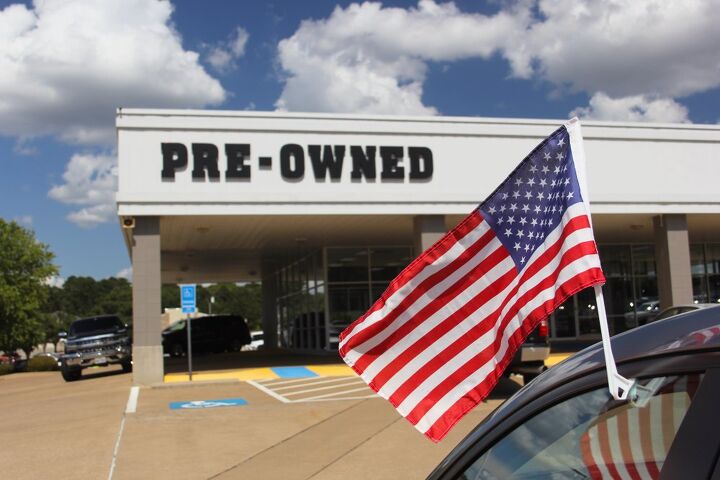



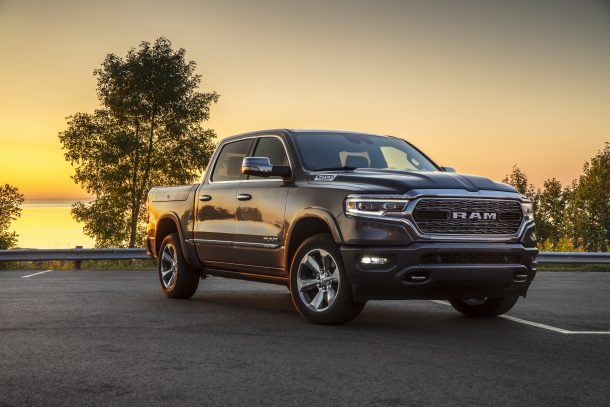
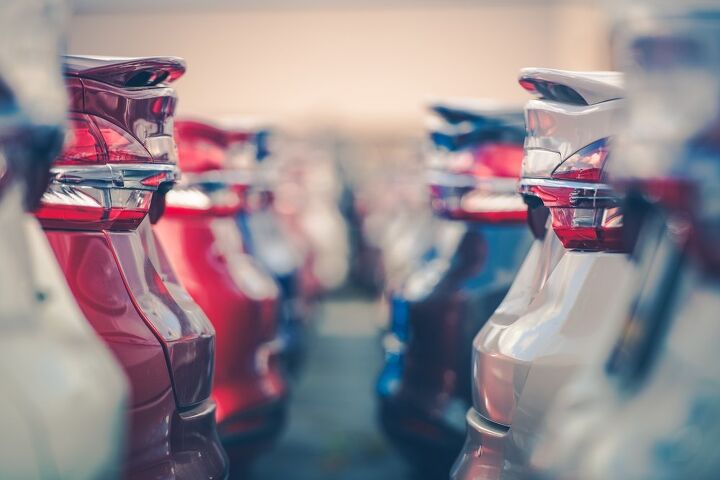

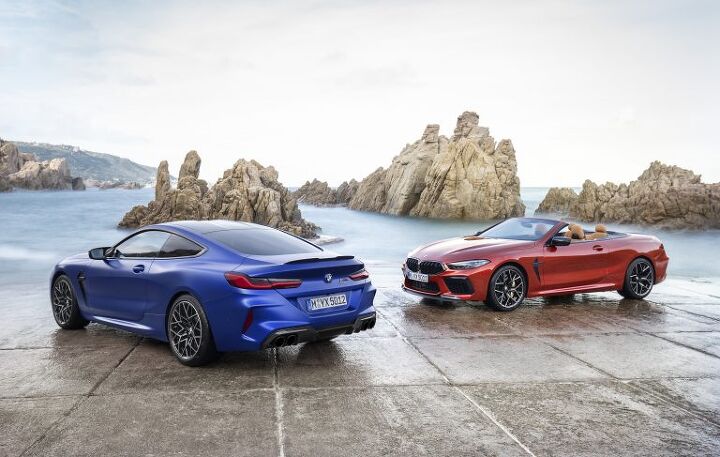

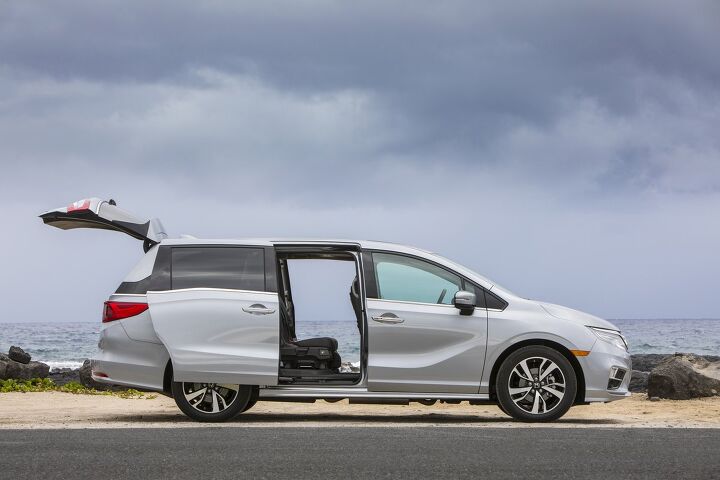
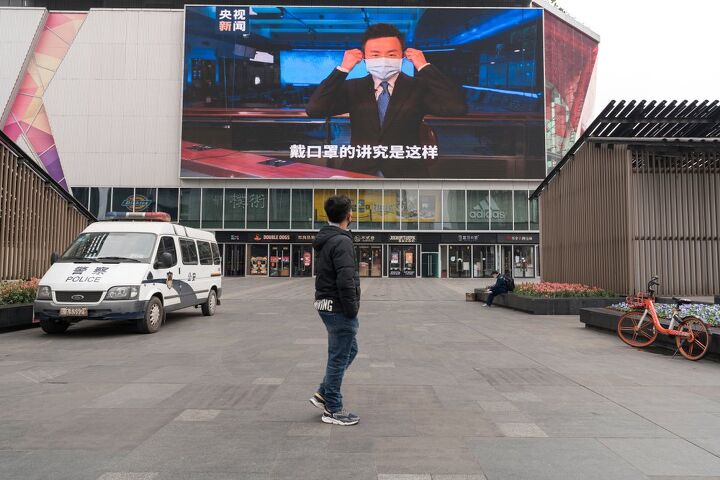
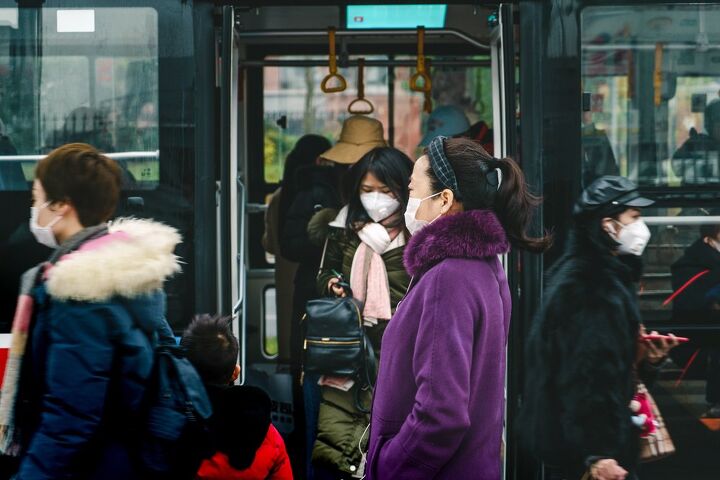















Recent Comments